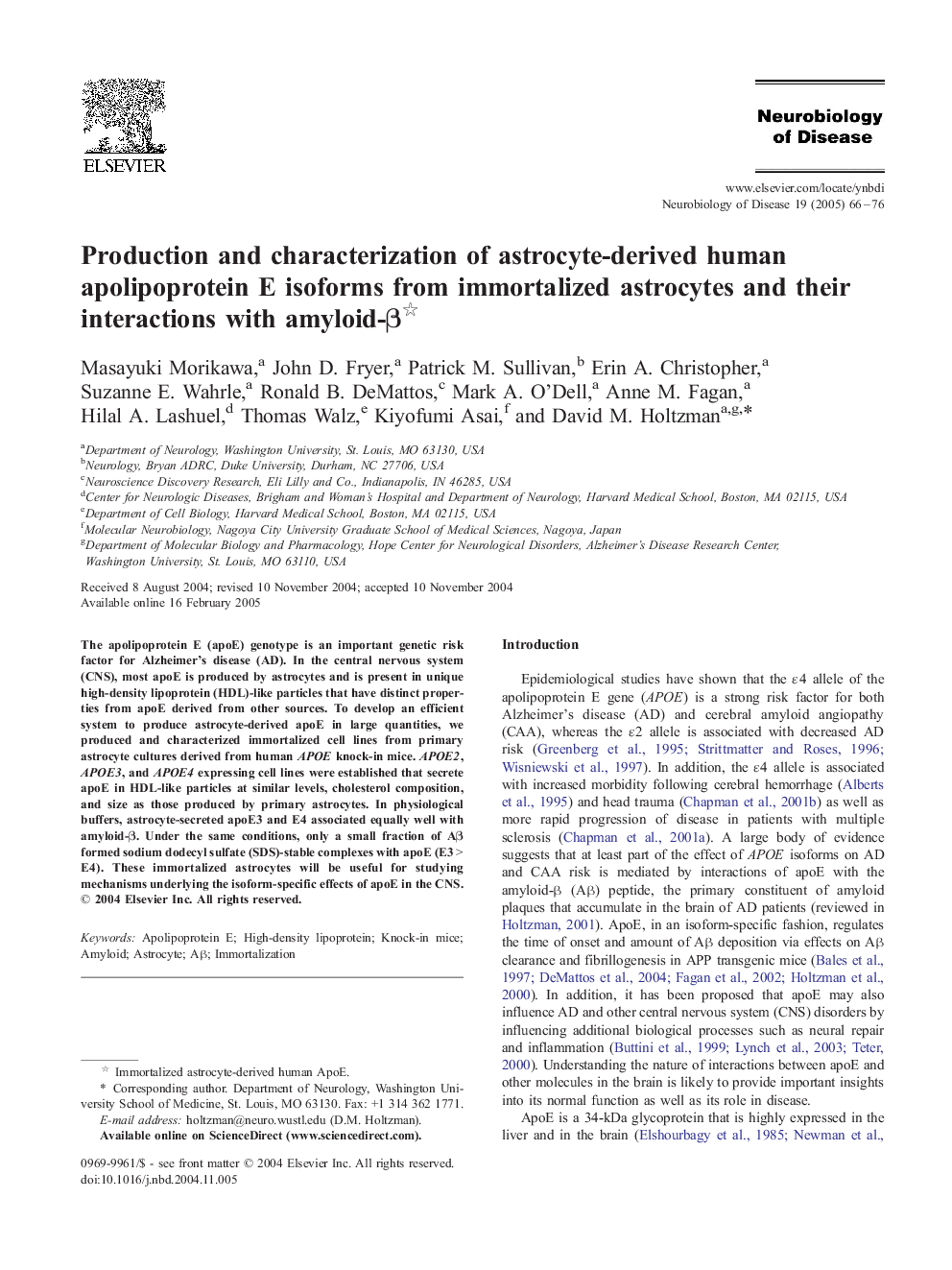| Article ID | Journal | Published Year | Pages | File Type |
|---|---|---|---|---|
| 9989709 | Neurobiology of Disease | 2005 | 11 Pages |
Abstract
The apolipoprotein E (apoE) genotype is an important genetic risk factor for Alzheimer's disease (AD). In the central nervous system (CNS), most apoE is produced by astrocytes and is present in unique high-density lipoprotein (HDL)-like particles that have distinct properties from apoE derived from other sources. To develop an efficient system to produce astrocyte-derived apoE in large quantities, we produced and characterized immortalized cell lines from primary astrocyte cultures derived from human APOE knock-in mice. APOE2, APOE3, and APOE4 expressing cell lines were established that secrete apoE in HDL-like particles at similar levels, cholesterol composition, and size as those produced by primary astrocytes. In physiological buffers, astrocyte-secreted apoE3 and E4 associated equally well with amyloid-β. Under the same conditions, only a small fraction of Aβ formed sodium dodecyl sulfate (SDS)-stable complexes with apoE (E3 > E4). These immortalized astrocytes will be useful for studying mechanisms underlying the isoform-specific effects of apoE in the CNS.
Related Topics
Life Sciences
Neuroscience
Neurology
Authors
Masayuki Morikawa, John D. Fryer, Patrick M. Sullivan, Erin A. Christopher, Suzanne E. Wahrle, Ronald B. DeMattos, Mark A. O'Dell, Anne M. Fagan, Hilal A. Lashuel, Thomas Walz, Kiyofumi Asai, David M. Holtzman,
